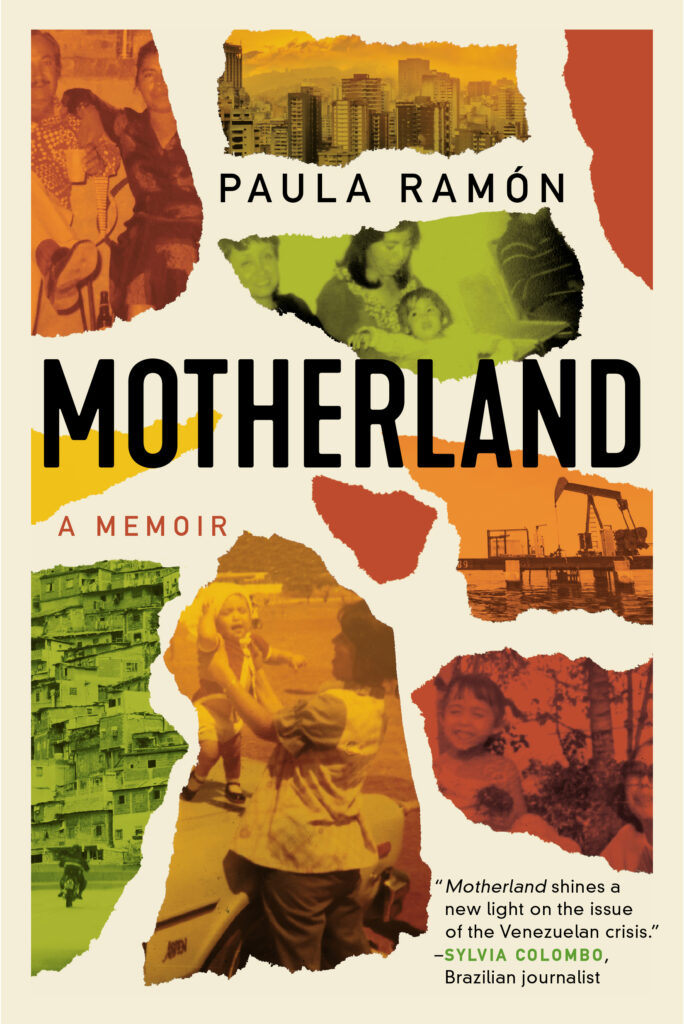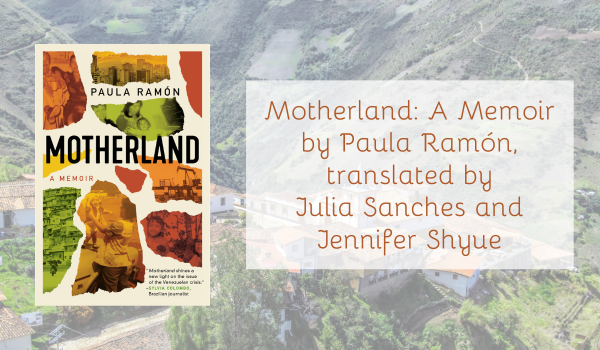Synopsis

Motherland is not a political book, but rather a poignant and sentimental search for one’s roots and for the answers to the often-asked questions: What defines us? Who are you in a new country? What truly matters?
By the time Ramón started high school in the 1990s, Venezuela was already experiencing turbulent times. The crisis got progressively worse. In the decades that followed, public services no longer functioned. Money lost its value. Eventually, her mother couldn’t afford to buy food, which was increasingly scarce. The once-prosperous country fell into ruin. Like many others, Ramón’s family struggled to survive each day in their beloved city, Maracaibo—until, one by one, they each made the unbearable choice to leave the home they loved.
In the end, it was Ramón’s mother, a widow, who stayed behind, loyal to the only home she’d ever known. In this heartbreaking mix of lived experience, family chronicle, and journalistic essay, Paula Ramón explores the anguish of her own relationships set against the staggering collapse of a country.
Motherland is a uniquely human account about the ties that bind—and the fragile concept of home.
Review
Motherland is a book of reflection and parallels, Ramón’s reflections on her life and the parallels you see between the political situation she was living in and what was going on in her family at the time. Ramón weaves her family’s personal history in with the historical events in Venezuela. It becomes almost a living testimony of a turbulent period in Venezuela’s history, providing the reader with a vivid backdrop to Ramón’s family life.
This memoir/essay is excellently structured and written, there’s enough detail to set the scene in terms of the politics of the time but you’re not overwhelmed as you read. Ramón’s clear yet descriptive writing (expertly translated into English by Julia Sanches and Jennifer Shyue) paints an evocative picture of what it was like growing up in her family in Venezuela in the 90s. You feel that you’ve got a comprehensive understanding both of the politics of the country and of Ramón’s family.
Part way through the story, Ramón reminisces on her childhood with “I didn’t understand exactly what was going on, but I had the sense that we were living in unsettling times, that there was always something happening on the news.” This theme of “knowing something big was happening but not being sure what” runs throughout the book. As Ramón supplies you with more details about what was happening in the world outside her family, you start to get the feeling that what’s happening politically will be significant in terms of her family’s lives.
Seeing the almost direct impact that these political events had on Ramón’s family is interesting and intriguing. Her vivid descriptions of the people around her make the book feel dynamic and animated. I found it interesting which aspects of others she chose to highlight and how she compared them with her own. Having the differences between her and her mother and brothers (and how different they were from each other) highlighted gives you time to reflect on the situation at the time and draw parallels between the two.
Julia Sanches and Jennifer Shyue’s translation is engaging and dynamic, echoing the Spanish. I like that they chose to keep some Spanish phrases in the English text and provide a translation or description after. For me, this grounded the text in its context, history and language – serving as a reminder of where and when Ramón lived and grew up.
Motherland is an insightful book, giving you a look into Venezuela’s history through some of those who experienced it. I found the book easy to read with detailed descriptions and explanations where they were needed. It’s a great book for those who don’t know much about Venezuela’s recent political history and want to learn more.
I’d like to thank the author, Paula Ramón, and translators, Julia Sanches and Jennifer Shyue, for writing and translating Motherland. I’d also like to thank Rachel Tarlow Gul at Over the River Public Relations for providing me with a copy of the book and organizing the blog tour. You can find about more about the blog tour here.
About the Author and Translators
Paula Ramón is a Venezuelan journalist who has lived and worked in China, the United States, Brazil, and Uruguay. She is currently a correspondent for Agence France-Presse, based in Los Angeles. She has written and reported for the New York Times, National Geographic, Columbia Journalism Review, and Piauí magazine, among other outlets.
Julia Sanches is a literary translator working from Portuguese, Spanish, and Catalan into English. Born in São Paulo, Brazil, she lives in New England. She is a founding member of Cedilla & Co., a collective of translators committed to making international voices heard in English, and chair of the Translators Group of the Authors Guild.
Jennifer Shyue is an accomplished translator from Brooklyn, NY focusing on contemporary Cuban and Asian-Peruvian writers, translating both poetry and prose. Her work has been published in Poetry Magazine, McSweeney’s, and Guernica, among other literary journals.

